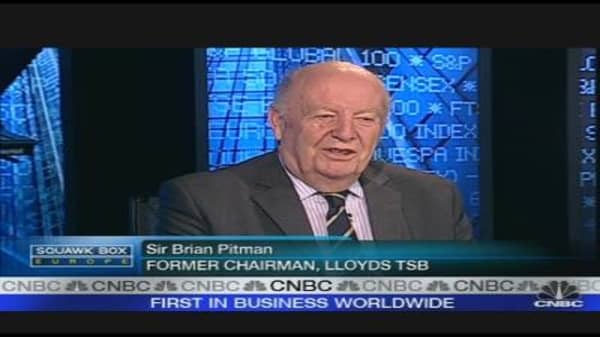If governments refrain from interfering, and banks' earnings power continues to be significant, "the prospect for the banks over a longer period will be good", former Lloyds TSB chairman Sir Brian Pitman said Tuesday.
The government interference with the workings of the banks will hinder the banks' profitability, Sir Brian told CNBC. Instead, the introduction of 'plain vanilla' securitization needs to be enforced, as people are too scared to take risks.
In order for banks to grow their businesses, Sir Brian sees a few changes in the banking system being made.
"One of the big changes will be the shape of the deposits. (Banks) will have to be able to attract more retail deposits because you won't be able to depend upon the money market as you have in the past," he said. "That should be good for savers over the longer term because the banks will have to compete for savings in a way that they haven't."
"Of course, the level of the savings rates here and in the US is much too low to finance the banks. So some form of securitization, in my view, albeit plain vanilla securitization, will be necessary," he said. "Otherwise the banks will be resting entirely upon the savers' deposits in countries where there's not much saving, and that will mean exceptionally slow growth."
Once the capital and debt markets are back in full swing, banks will be relieved of their obligations to finance companies that would normally raise money through the debt market, according to Sir Brian.



